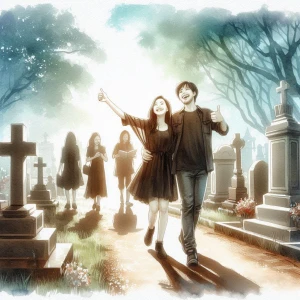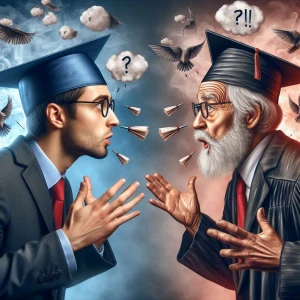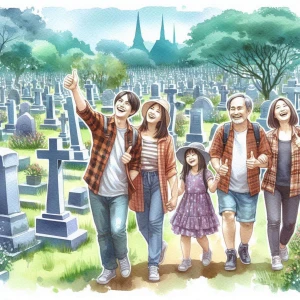
Big Ideas on wrapping shit up

Big Ideas on wrapping shit up
Beyond Denial of Death Next Stage
Since the passing of Ernest Becker, author of the Pulitzer Prize-winning book "The Denial of Death," there has been a significant continuation of his work and ideas. Scholars and thinkers have further explored Becker's concepts, examining the human tendency to deny mortality and vulnerability. This exploration has led to the development of various movements aimed at improving our relationship with dying, such as the hospice movement, the push for advance directives, and the palliative care movement, which focuses on quality of life. The concept of "death acceptance" has also gained traction, with initiatives like green burials, at-home death care, and death doulas becoming more mainstream.
These efforts are part of a larger Death Positive Movement, which encourages open discussions about death and dying. Additionally, modern research in phenomena such as near-death experiences and past-life memories has supplemented Becker's findings, offering new perspectives on the human experience of death and the afterlife. The Ernest Becker Foundation, established in 1993, played a pivotal role in advancing these understandings and fostering social change, although it closed its doors at the end of 2023. The Ernest Becker Institute, was renowned for its exploration of death anxiety and its impact on human behavior. The foundation was instrumental in advancing the understanding of how the fear of death profoundly influences cultural worldviews and personal self-esteem. Through its work, the institute aimed to foster a more peaceful coexistence by illuminating the role of death in life.
While the specific reasons for its closure are not detailed in public records, the legacy of Ernest Becker and the institute's contributions to the field of existential psychology continue to influence and inspire. Their work, particularly in Terror Management Theory, has provided valuable insights into the human condition, offering a lens through which to view our behaviors, beliefs, and the pursuit of meaning in the face of mortality. The legacy of Becker's work continues to influence our cultural and academic discourse, encouraging a deeper awareness of the role of death in human motivation and behavior.

Death acceptance is a profound psychological and emotional process that involves recognizing and embracing the reality of our own mortality. It's a shift in perspective that allows individuals to confront the finitude of life with courage and serenity. This concept is not new, but it has gained more attention in recent years as part of a broader "death-positive" movement. This movement encourages open discussions about death and dying, aiming to demystify and destigmatize these inevitable aspects of human experience.
The idea of death acceptance is rooted in the understanding that death is a natural part of life. By accepting death, individuals can live more fully, with a greater appreciation for the present moment and a clearer focus on what truly matters to them. It's about finding peace with the end of life, which can, in turn, enhance the quality of the life lived.
In practical terms, death acceptance can lead to more meaningful conversations about end-of-life care, advance care planning, and the wishes of the dying. It can also influence how healthcare professionals approach palliative care, emphasizing comfort and quality of life over aggressive treatments that may not add value to a person's remaining time.
Moreover, death acceptance has implications for mental health, as it can reduce death anxiety and help people cope with the loss of loved ones. It encourages a healthier attitude towards grief and bereavement, acknowledging the pain of loss while also recognizing the ongoing journey of the living.
Culturally, death acceptance can manifest in various ways, from the rituals and ceremonies we perform in honor of the deceased to the art and literature that explore themes of mortality. It's a concept that crosses cultural and religious boundaries, resonating with universal human experiences.
In essence, death acceptance is about embracing life's impermanence and finding meaning in the face of our transient existence. It's a powerful concept that can transform fear into acceptance, and in doing so, change how we live our lives.

The realization of one's mortality often brings a profound shift in perspective, particularly regarding immortality projects, which are the symbolic systems or legacies individuals create to achieve a sense of permanence beyond their physical existence. When faced with the inevitability of death, some may experience a deep existential crisis, questioning the value and purpose of their efforts.
Others might find a renewed sense of urgency, striving to strengthen or leave a more impactful legacy. This confrontation with mortality can also lead to a more authentic life, as individuals reassess their priorities and values, focusing on what truly matters to them. It's a pivotal moment that invites reflection on one's life narrative, the desire for continuity, and the acceptance of life's transitory nature. Ultimately, it's a deeply personal journey that varies from individual to individual, influenced by their beliefs, culture, and life experiences.

The best reasons to choose life and transform destructive habits are rooted in the profound value of health and well-being. Embracing change can lead to a multitude of benefits: improved physical health, enhanced mental clarity, and increased longevity. It's about nurturing the body, fostering resilience against diseases like obesity and diabetes, and unlocking a more vibrant version of oneself. It's about the joy of experiencing life's milestones, big and small, and the fulfillment that comes from pursuing passions and dreams. Moreover, it's about the connections we forge—changing harmful habits can lead to deeper, more meaningful relationships with others and a greater sense of community. Every step towards healthier habits is a step towards a fuller, richer life. It's a journey worth embarking on, filled with discovery, growth, and the potential for happiness that knows no bounds.
Big Ideas on wrapping shit up Beyond Denial of Death Next Stage Since the passing of Ernest Becker, author of the Pulitzer Prize-winning book "The Denial of Death," there has been a significant continuation of his work and ideas. Scholars and thinkers have further explored Becker's concepts, examining the human tendency to deny mortality and vulnerability. This exploration has led to the development of various movements aimed at improving our relationship with dying, such as...
Read MoreFilthy Beauty of Agnotology and Personality Disorders “Historians and philosophers of science have tended to treat ignorance as an ever-expanding vacuum into which knowledge is sucked – or even, as Johannes Kepler once put it, as the mother who must die for science to be born. Ignorance, though, is more complex than this. It has a distinct and changing political geography that is often an excellent indicator of the politics of knowledge. We need a political agnotology to complement...
Read MoreWhen Wittgenstein stated that an expression only has meaning within the stream of life, he was referring to language, specifically to words and their relationship to each other in communication. An expression, or a word, has no inherent meaning unless used to convey something important or meaningful to someone else. Without this meaning, an expression would be "just" words, as Wittgenstein described them. This idea of meaning being tied to the context in which a word...
Read More